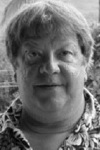2007 principles of fluorescence techniques
jun 25 - 29, 2007 | genova, italyFluorescence techniques are being used and applied increasingly in academics and industry. The Principles of Fluorescence Techniques workshop will outline the basic concepts of fluorescence techniques and the successful utilization of the currently available commercial instrumentation.
The workshop is designed for students who utilize fluorescence techniques and instrumentation and for researchers and industrial scientists who wish to deepen their knowledge of fluorescence applications. Key scientists in the field will deliver theoretical lectures. The lectures will be complemented by the direct utilization of steady-state and lifetime fluorescence instrumentation and confocal microscopy for FLIM and FFS applications.
Participants are recommended to have at least a bachelor’s degree in the life sciences, physical sciences or engineering before attending. Interactions between participants and lecturers will be fostered. Students will have ample opportunity to personally explain their research programs and ask questions about the applicability of specific fluorescence techniques to their workshop lecturers. Topics addressed in this workshop include:
- Basic Definitions and Principles of Fluorescence
- Steady-state Fluorescence (spectra, kinetics, polarization)
- Time-resolved Fluorescence (lifetime, anisotropy, time-resolved spectra)
- Fluorescence Probes
- Instrumentation
- Data Manipulation and Data Analysis
- Confocal and Multiphoton Fluorescence Microscopy
- FFS, Fluorescence Fluctuation Spectroscopy
- FLIM, Fluorescence Lifetime Imaging
- Particle Tracking
- Single Molecule Imaging
- Super-resolution techniques, STED
The number of participants to the course is limited:
Lectures: Limited to a total of 70 participants (auditorium size).
Practicals: Limited to a total of 30 participants (interactive, small-group sessions).
Participation is granted on a first-registered, first-served basis.
Tentative Agenda
June 11
Prof. David M. Jameson
Prof. David M. Jameson
Instructors

Prof. David M. Jameson
University of Hawaii at Manoa | Department of Cell and Molecular Biology | John A. Burns School of Medicine | Honolulu, HI 96822 | USA | Tel: 808-956-5034 | Website
Travel
The Principles of Fluorescence Techniques course will be held at:
Italian Institute of Technology
via Morego, 30
1613 Genova
Phone: +39 010 71781
Fax: +39 010 720321
For a map and detailed instructions, please go to http://www.iit.it/en/location. The rest of this page provides a basic introduction to Genova.
Genova can be easily reached from major European cities.
By Plane
The Genova international airport, Cristoforo Colombo, is located 6 km from downtown Genova. It maintains direct air connections to Barcelona, Frankfurt, Geneva, London (LGW), Milan, Munich, Paris, and Zurich regularly. There are shuttle buses to Stazione Brignole, the main train station, every half hour. Buy a bus ticket on the bus for € 2.5, or buy a day ticket for € 3 (recommended), which will allow you to take any bus, including the shuttle, for the whole day. You may take a train or a taxi (approximately € 20).
By Train
Rapid train connections to the European train network occurring daily:
to/from Milan for Switzerland/Austria/Germany;
to/from Turin for North France/Paris;
to/from Menton/Marseille;
to/from Rome/Neaples and Pisa/Florence.
Rapid connections are guaranteed by the TEE, EC and IC trains with convenient times in all directions. The trains follow the routes of major European highways. The Ventimiglia-La Spezia line gathers travelers in western Italy going to Turin via Savona-Genoa, Milan via Genova, and Parma via La Spezia, and joins the Tirrenica line for Rome, Naples and the South. (Time table of Italian railways.)
By Bus
Bus tickets can be bought at newspaper kiosks or tobacco shops for € 1, or during the night you may buy them from the bus driver for € 1.50.
By Ferryboat
The Genova port is a major Mediterranean and transatlantic maritime headquarters for passengers and merchandise. Ships arrive from ports in Europe, the Far East, the Americas, Africa and other continents. Frequent connections are guaranteed on national and Mediterranean routes and for car ferries (Sardinia, Sicily, Corsica). Regular lines travel to the ports of La Spezia, Savona and Imperia. Smaller tourist ports allow recreational watercraft of every size to be docked with optimum installation and service.
By Car
Genova is connected to the main European highway network:
A7 for Milan/Switzerland/Venice/Austria/Germany;
A10 for Ventimiglia/Menton/Marseille;
A12 for Livorno/Rome/Naples.
Currency
The official currency in Italy is the Euro (€). Foreign currencies can be converted to Euros at banks, which are usually open from Monday to Friday from 8:30 to 13:30. Most hotels also exchange foreign money and travellers’ cheques.
Weather
The weather in Genova is usually mild. The temperature in June is around 64° - 75°F or 18 - 24°C.
Electricity
Electricity in Italy is supplied at 220V - 50Hz AC.
Main European towns
(Distance by highway or train) Milan, Turin (150 km), Nice (190 km), Florence (300 km), Geneva (400 km), Venice (400 km), Rome (490 km), Munich (700 km), Naples (700 km), Barcelone (900 km).
Emergency Calls
(Dialed Free of Charge)
Police emergency: 112 or 113
Medical emergency: 118
Shopping in Genova
Most shops in Genova are open between 9:00 and 19:30.
Several hotels are located in downtown Genova. We have a group reservation at Hotel SanBiagio. We will provide you the group registration code after you have registered for the course. You are responsible for making the reservation and for paying for the cost of your accommodations. This specific hotel is about 80 euros per night in a single room.
Register
Registration is closed for this event.